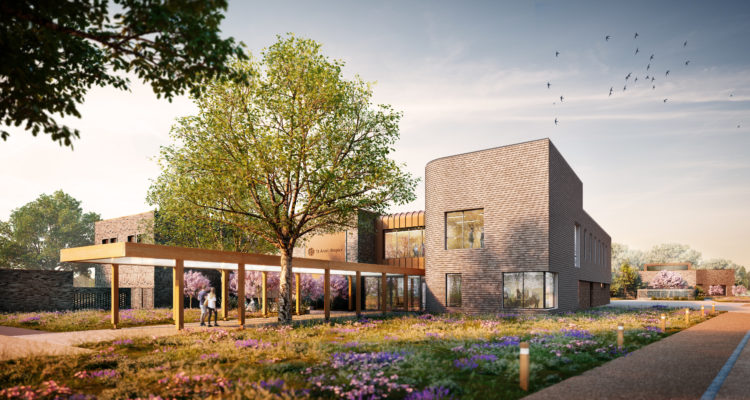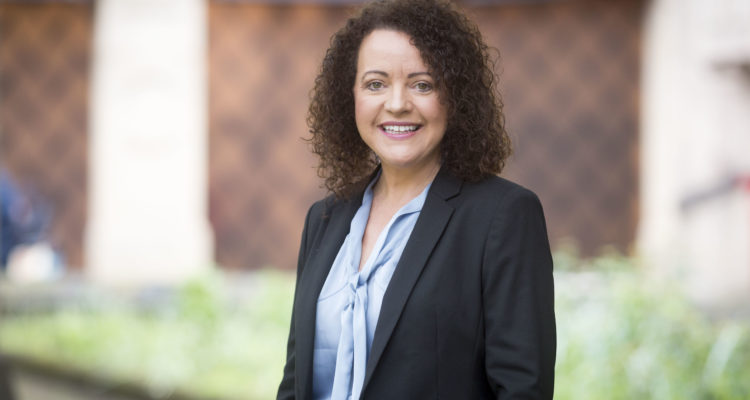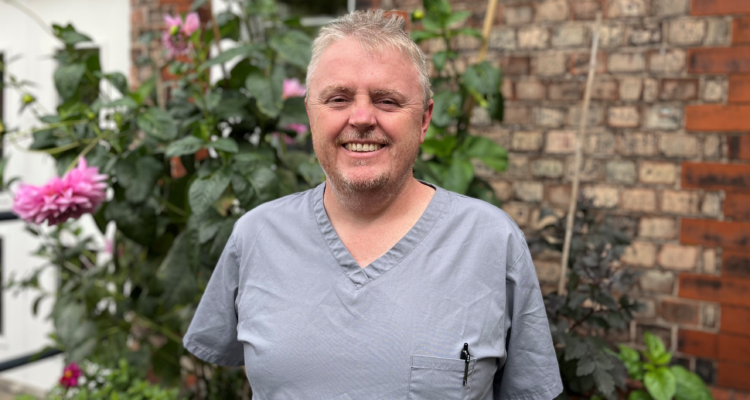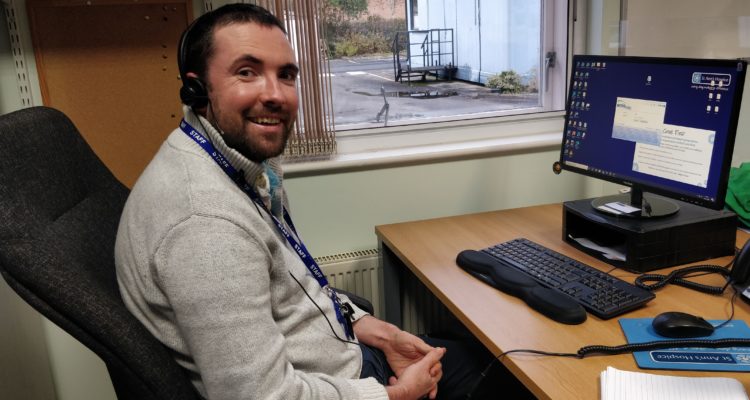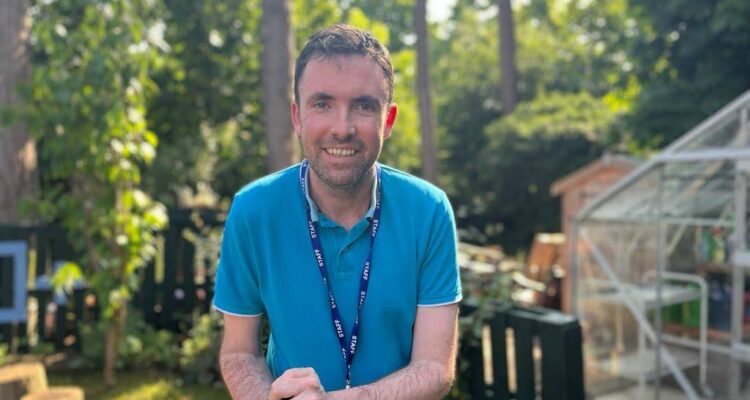
Will you join our Forget Me Not appeal to help the patients and family members who need the support of St Ann’s Hospice?
As we approach summer, for many this is a time of reflection in the sunshine and time spent in the garden, which is a time to come together and remember the ones you love.
This summer you can attend one of the Forget Me Not celebration events as well as dedicating a flower in memory of a loved one in St Ann’s Hospice’s online Memory Meadow. This allows you to share your photos and memories with family and friends.
Patrick Clark, Senior Counsellor for St Ann’s Hospice, is speaking at the celebration events in aid of the Forget Me Not appeal. Patrick says: “My hope is that our Forget Me Not celebrations will bring some comfort and encouragement as we come together to celebrate the lives of those who have gone from our sight, but not from our memory.
“This is the first year that our Let’s Talk Team is leading the Forget Me Not celebration events, and we will be around at the end of the events to speak to those who wish to learn more about how we can help.”
Many people find the gardens at our hospice sites are a place of tranquility and a space to reflect. The timing of this year’s celebration and the Forget Me Not appeal, being in the summer, gives us the opportunity to see those gardens in full bloom as we remember our loved ones.
Patrick Clark, Senior Counsellor, St Ann’s Hospice

St Ann’s Hospice provides counselling, bereavement support and psychological support given through the Let’s Talk service.
The trained team of counsellors and assistant practitioners are there to support those in need of the service. The Let’s Talk Team helps enable bereaved people to try to live the best life they can from today, knowing that someone’s loss might always be with them.
Patrick says: “We provide support through creating a safe space to share, active listening, being open and honest, having an unconditional positive regard and empathy.”
We welcome referrals from family and friends of people who have a connection to the hospice to our service. The service is free and available for anyone who has had treatment at the hospice or is a family member, carer or friend who is grieving someone they’ve lost.
Patrick Clark, Senior Counsellor, St Ann’s Hospice

The Forget Me Not services at both hospices are open to everyone as an opportunity for reflection and celebration of the lives of loved ones. They will take place on Saturday 1st July and will be led by the Let’s Talk Team, part of the hospice’s Patient and Family Support Team.
If you would like to attend either of these special events, please register for Heald Green here or Little Hulton here, or call us on 0161 498 3631.
You can support the Forget Me Not appeal in other ways, such as purchasing a bespoke stained glass forget me not suncatcher to display in your garden, home or place of remembrance; or donating to the hospice by making a dedication on the online Memory Meadow. All details of the appeal can be found here.


